Curriculum Maps


Literacy:
This half term, the Nursery children will be encouraged to give meaning to the marks they make through different writing opportunities in the nursery environment. The children will be supported to use the correct tripod grasp during their mark making activities and when they practise their name writing.
The children will be encouraged to answer simple questions and talk about key characters relating to our weekly texts.


Communication and Language:
The children are well rehearsed in initiating conversations with friends and familiar grown-ups. They will be encouraged to use their talk to organise their play, negotiate turn taking and expressing their points of view. The children will continue to use their active listening skills when other people are talking during carpet times and respond to questions with relevant responses.
Expressive Arts & Design:
Using a range of resources, the children will be encouraged to use their imagination and creativity to design and create their own pieces of art. The children will continue to be supported to clean their brush before changing paint colour. Children will continue to sing nursery rhymes and numeracy songs. They will take part in a range of call and response songs using a range of musical instruments
Mathematics:



The children will continue to develop their knowledge of mathematical concepts (counting, ordering, subitising, measurement and comparison) within small group maths sessions and within the nursery environment.
Children will learn to make comparison between objects relating to size, length, weight and capacity.


Nursery Curriculum Map Spring
Two


Additional Information:
We love to see all of the lovely adventures and fun times the children experience at home. Please continue to share and document your wonderful adventures and achievements on Seesaw!
Important dates
7th March – World Book Day 11th, 12th and 13th March – Parents evening
Understanding the World:


The children will have the opportunity to plant seeds/bulbs and care for their own growing plants. Through this experience, the children will learn to identify flowers, leaves and stems, as well as beginning to understand the life cycle of plants. The children will continue to have more experience of the outdoors through planned learning opportunities in the forest area of the school grounds. These opportunities will help the children to understand the need to respect and care for the natural environment and all living things.

Physical Development:
The children will continue to develop their fundamental movement skills (crawling, walking, and jumping) in P.E sessions and when using equipment in the outdoor area (balancing, riding on scooters, trikes and bikes)
Children will continue using tweezers, scissors and threading equipment in the nursery environment to develop fine motor skills and strength.

Personal, Social and Emotional Development:
The children will be supported to recognise and understand their own emotions and the emotions of others.
The children will learn how to view themselves as responsible members of the class and take on roles as helpers during tidy up time, snack time and home time. Children will continue to access the environment confidently and independently, alongside their friends.
Mathematics:

During this half term, the Reception children will continuing to work on numbers 6-10, using and applying the counting principles they have already learned. Children will be able to subitise smaller numbers and use this knowledge to recognise patterns in related number bonds to 5.
Children will use objects and fingers to explore number bonds to 10. We will begin to recite some by memory.
We will introduce children to 3D shapes and encourage them to notice differences between 3D and 2D shapes
Expressive Arts & Design:

With increasing independence, children can create with a purpose in mind. Children will be encouraged to create props that they can use within their role-play and within the classroom provision.
Children will be able to move in time with music and respond to instructions, such as ‘clap along’ or ‘stamp your feet’. They will also replicate some choreographed dances.
Children will be encouraged to talk about how a picture, song or dance makes them feel.
Communication and Language:

Reception continues to be a language-rich environment, where children are exposed to new vocabulary that links to different areas of the curriculum. Children will understand a question or instruction that has two parts. They will then be able to ask questions to clarify meaning in regards to the instruction.
The children will listen to and respond to what they hear with relevant comments and questions.

Physical Development:

This half term, children will work on skills to negotiate space and obstacles. They will also practise changing direction when walking and at an increased speed. Within their PE lessons, children will develop and their throwing and catching skills. They will also learn to control the direction of the object they are throwing, to make sure it can be received by another person. Reception will continue to work on their fine motor skills to support them in correctly forming graphemes. This includes using clear ascenders and descenders when forming letters.
Reception Curriculum Map Spring 2
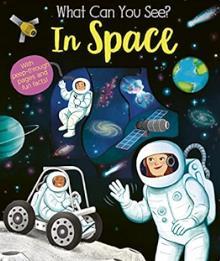


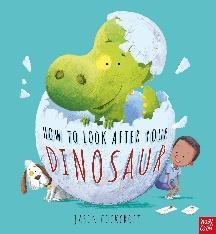
Literacy:




Children will continue to take part in daily phonics sessions to support their reading development. During these sessions, children will continue to develop their segmenting and blending skills, allowing them to read words and sentences.
Children will be given lots of opportunities to develop their writing skills. We will be focussing on the children using their phonic knowledge to write words and captions/sentences.
In order to support your child’s development, we ask that you read as often as possible at home and leave a comment in your child’s yellow reading record. It really does make such a difference!

Personal, Social and Emotional Development:
Reception will continue to work on the daily routines in school which allow them to become regulated and settled; ready to learn. Children will be encouraged to share resources and take turns within activities They will continue to use the ‘Zones of Regulation’ to allow them to independently manage feelings and emotions.

Children will be encouraged to engage in independent activities and show increased perseverance when they face a challenge. They will become more independent at finding resources and being self-sufficient learners.
Understanding the World:

The children will learning about different astronauts from the past and present. They will learn about some historical events that have taken place in space.
The children will continue to have experiences in the outdoors through planned learning opportunities in the forest area of the school grounds. These opportunities will help the children to understand the need to respect and care for the natural environment and all living things.
Additional Information:
Reading continues to be a huge focus in Reception, please ensure you are practising at home and leaving a comment in your child’s reading record.
Forest school will continue to be on a Thursday. Please remember to bring a pair of Wellies to school.
PE is on Friday. Please remove earrings before school as staff are not able to remove them.
Mathematics: In Mathematics, we will continue to explore additive structures where we will: combine two or more parts to make a whole; explain that addends can be represented in any order; explain that the = sign can be used to show that the whole and the sum of the parts are equal. We will then move on to look at addition and subtraction up to 10.



Geography – Our wonderful world
Year 1 Curriculum Map Spring 2
Science – Animals, including humans:

The children will identify common vertebrates from the five groups, including carnivores, herbivores and omnivores. They will study the structure of animals, and link this in humans to the function of the senses.

Builds on names of common animals; life cycle of a butterfly (EYFS)
English:

The children will learn the names and locations of the seven continents and five oceans and recognise landmarks. They will understand geographical similarities and differences by studying the human and physical geography of a small area of the UK alongside a non-European country. Builds on understanding of landmarks in the local area learned in the early years.
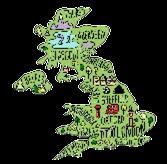
Art

In Art, we will explore mark making with paint using primary colours. We will use the work of Mondrian as a focus.

This builds on the children’s ability to hold drawing tools correctly, which they learned in the early years.


History - How have explorers changed our lives?
The children will study the lives of astronauts Neil Armstrong and Mae Jemison, looking at their significant achievements and the impact they have on our lives today.



The children will continue to explore poetry and will create their own calligram poem about spring to recite to an audience.



The children will meet an alien and a young girl who find themselves in trouble in ‘The Way Back Home’. They will write a continuation of the plot:


* Link to history – Explorers
The children will discover bold women in Black History by researching Mae Jemison to write their own biography.
* Link to history – Explorers
DT – How does food affect your senses?
The children will peel, chop and grate a selection of vegetables and modify food to suit food senses.

* Link to science and PSHE
Phonics - Children will have a daily phonics lesson and will continue to be taught to read using the Read Write Inc phonics scheme. They will learn 3 new sounds each week and will practise reading words containing new and previously taught phonics through decodable books matched to their ability.
ICT/Computing: Programming
The unit builds on programming disciplinary knowledge in EYFS.

RE – What is Easter?


The children will learn to move a robot in four directions using buttons. They will develop routes and instructions to enable a robot to reach a destination.

Text and Images
Music: pulse, rhythm, performing and listening and appraising
The focus of this unit is the theme of religious celebration through exploration and experience of the major Christian festival of Easter. The unit begins with the first Easter day stories and explores the Christian belief that Jesus brings new life and is God’s Gift to the world.

Builds on understanding of Easter covered in EYFS.

PSHE: relationships
Builds on understanding of Easter covered in EYFS.
The children will: play games; perform notation as body percussion; identify a variety of instruments by their sound and use them to play simple notations; listen to orchestral/folk/modern music; and identify & compare the moods, emotions and genres of two songs. Our learning will culminate in the performance of a folk song.

Maths Basic Skills:
Reading at home:
We will be exploring the theme of relationships looking at: families and people who care for me; caring friendships; respectful, online relationships and staying safe. Builds on previous learning in Year 1 and EYFS.

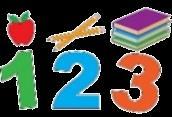
Every Friday, we will be having a maths basic skills quiz. This will help the children to improve the fluency of their addition and subtraction skills and help them embed their number bonds.

PE – Attack, defend, shoot

In PE, the children will develop skills of throwing and catching through fun games and team activities. Builds on fundamental skills (EYFS) Builds on EYFS fundamental skills.

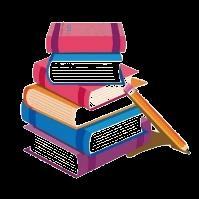
To reach their full potential, children must reading aloud with an adult at home every night. Reading develops skills that are invaluable across the whole curriculum and this extra practice can have a significant impact on the amount of progress made, and the speed at which it is made. When you are reading or practising sounds with your child, please remember to sign in their reading record.

Homework: Children will receive one piece of homework each week. The focus will alternate between English & maths. Homework will be posted to Seesaw on Friday afternoons to be completed by the following Friday. Please encourage and support your child with their homework by making sure it is completed.

THRIVE at Throckley
22nd March – Our Contribution - Children will donate a toy that they no longer play with to a charity and will write a tag to accompany the toy with a message of hope for the new owner.
Knowledge organisers that outline the key content covered in History, Geography, Science and R.E. will be uploaded onto Seesaw. Please take a look and quiz your child on their newly acquired knowledge!

English:

Year 2 Curriculum Map
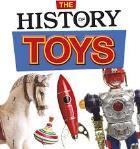
For our writing focus this half term, we will be exploring a non-fiction text, ‘The History of Toys’. We will be learning about figurative language, such as onomatopoeia and alliteration, and utilising them within our writing to create our own nonchronological report about toys through the years.
*Link to History.
Geography
If you go down to the woods today, what will you discover?
This half term, children will deepen their understanding of climate, continents and oceans from Year 1 as they consider why forests differ in different locations. Children will have further experiences of fieldwork through the exploration of maps and investigation of our school grounds.
*Link to Science (plants- evergreen and deciduous trees)
History

We are embarking on a journey through history to explore popular toys throughout the 20th and early 21st centuries. We will be using a range of primary and secondary sources to understand why the types of toys available have changed throughout this time.


*Link to Science


Spring 2
Mathematics:

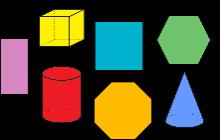
We will start the half term by identifying 2D and 3D shapes and describing their properties.
We will then move on to adding and subtracting two-digit numbers.
Building on our place value knowledge of tens and ones, we will be using the column method to add and subtract accurately.

As always, we will continue to build our knowledge, pace and fluency with the 2, 5 and 10 times tables.
Thrive Day
For Year 2’s Thrive Day this half term, children will focus on ‘Our Cultures’ by participating in a day centred on the religion of Islam. We will enjoy a virtual visit of a Mosque, learn a song in Arabic and design an Eid celebration card.
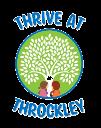

Science–Animals including humans:


This half term, we will be building on our learning from spring 1 and by developing our understanding of living things and their life cycles. We will begin to use our knowledge and understanding to identify the stages of human development, before exploring the importance of humans exercising, eating the right amounts of different types of food, and having good hygiene.


Design Technology
Food and Nutrition
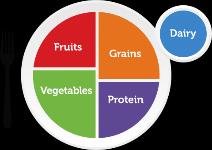
How healthy is your food?
This half term, we will shape and form ingredients to make delicious, healthy food using a range of culinary techniques.

* Link to Science – Animals including humans (Nutrition) PSHE – Physical health and mental wellbeing (Health)
Computing: Programming


We will develop our understanding of instructions in sequences and the use of logical reasoning to predict outcomes. We will design algorithms and then test those algorithms as programs and debug them if we come across any issues

Art Painting
This half term, we will explore line, colour and shape. The children will make their own painting tools and develop colour-mixing skills using secondary colours.
Phonics and Spelling:
We will continue to embed our Set 2 and Set 3 sounds, whilst being introduced to Year 2 spelling patterns, to become fluent with our spelling.


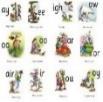
RE: How do the events of Easter make me feel?
PSHE: Being safe: This half term we will explore how to keep ourselves, and others, safe when navigating the virtual and wider world.
* Link to Computing

PE – Dance and Cricket:
This half term, Year 2 will be applying agility, balance and co-ordination skills to a whole class dance routine.
Northumberland cricket will be coming in to help us with our ball skills, as we practise throwing and catching with one and two hands.
Times table Tests: Every Friday morning, we will have a times table test. When your child gets full marks for 3 consecutive weeks, they will move on to the next times tables and will receive a label in their reading record book.

Music - Inventing a musical story: We will extend our understanding of listening/appraising, singing and improvisation/composition through our performances.


Homework:
We will develop an understanding of why Christians take part in Lent and make connections between the stories of Jesus and Christian attitudes to gifts, giving and forgiveness.

Knowledge organisers that outline the key content covered in History, Science and R.E. will be uploaded onto Seesaw


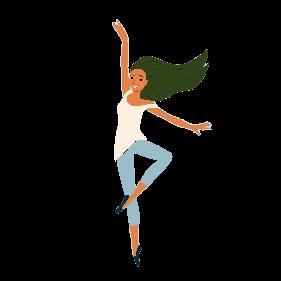
Reading and Spellings at home:
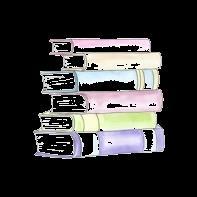
To reach their full potential, children must read aloud with an adult at home every night. Reading develops skills that are invaluable across the whole curriculum; this extra practice will have a significant impact on the amount of progress your child makes and the speed at which it is made. When you are reading or practising spellings with your child, please remember to sign in their reading record for a chance to win fantastic prizes, including Star Reader.
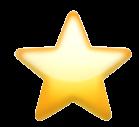
In Year 2, children will receive homework through Seesaw every Friday that will consolidate their learning from the week. This is required to be completed by the following Friday. Please support your child with their homework, encouraging them to talk about similar tasks they have been doing in school, so that they become confident with articulating their learning.



English: Children will write a short narrative describing the life and surroundings of a refugee child from their point of view, inspired by the story ‘Wisp’ by Zana Fraillon. *Link to PSHE Children will also use the knowledge from their history lessons to write a biography about the life and history of Tutankhamun. *Link to History



Year 3 Curriculum Map Spring 2
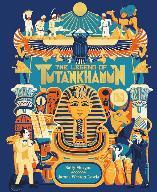
During whole class reading sessions, children will continue to delve into the story ‘Charlotte’s Web’ by E.B. White. Applying the VIPERS reading disciplines, children will broaden and deepen their understanding of vocabulary, inference, predictions, explanations, retrieval and summaries. Through ‘Book Talk’ lessons, children will develop a love for reading as they get the opportunity to discuss, role-play and evaluate books. Mathematics: Children will build on their knowledge of the 2 times tables to represent their 4s and 8s. Towards the end of the unit, children will work with division facts and scale by 10. Children will also explain the column subtraction algorithm and exchange 2 and 3 digit numbers from Tens to Ones and Tens to Hundreds.

Science – Forces and Magnets:

Year 3 will conclude their study of magnets by understanding the importance of magnetic poles, analysing the patterns they discover in the behaviour of like and opposite poles. They will then embark on a study of the human muscular and skeletal system, investigating the way that muscles operate in pairs and studying the three major types of bone joint. The children will expand upon their knowledge of nutrition gained in Year 2, moving from an understanding of major food groups to the function of the seven nutrient types in humans.




RE – What is the significance of the events of Palm Sunday and Holy Week? Children will build on their prior knowledge of Easter from KS1 as they explore the significance of the events from Palm Sunday, through Holy Week to Easter Sunday.




Geography –What is beneath our feet? This unit builds on children’s ability to locate the world’s countries as they start to identify a much wider range of countries. Children will use fieldwork to observe, measure, record and present the human and physical features in the local area. Using maps, children will look at countries, cities and geographical areas, comparing changes in their structure over time. Children will explore climate zones, biomes and vegetation belts, rivers, mountains, volcanoes and earthquakes, and the water cycle.


History - Should we celebrate the Ancient Egyptians?

Children will build on their understanding of innovation and civilisation to explore the lives of the Ancient Egyptians: children will use primary and secondary sources to investigate who the Ancient Egyptians were, how they lived and in what they believed. Linked to their learning in English, children will construct a biography of King Tutankhamun.
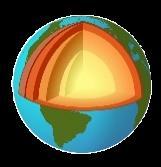
Design and Technology – Systems: In this half term, pupils will look at different types of energy and the ways these can be used to power different devices. They will further consider how design choices are influenced by energy sources.

Computing: This half term, children be building on their online safety learning, looking specifically at privacy and security.
Children will also be exploring a Data and Information topic, where they will be sorting information within a database.

PSHE - Relationships




Children will continue to explore the relationships that they have with their family and friends. They will discuss what respect looks like both in person and online. * Link to
Computing Times Tables:

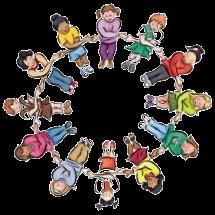



Children should all be able to quickly recall the 2, 5 and 10 times tables. We will be continuing to learn and enhance our knowledge of the 4 and 8 times tables. It is essential for children to be accurate and quick with tables so that they can confidently access the full maths curriculum. Keep practising!
Thrive Day
For Year 3’s Thrive Day this half term, children will focus on ‘Our Community’. Children will meet and engage with the local police to learn all about looking after the community that we live in.

PE – Net/Wall Games (Tennis and Badminton): Children will develop their game skills in footwork, aiming & the use of apparatus such as racquets. Children have been developing a sense of teamwork over the year and will continue to do so playing in doubles for some games. Children will also participate in exciting rugby activities, delivered by Newcastle Falcons.



French: This half term, the children will revisit their knowledge of Parisian landmarks and British cities, and recognise six new Paris landmarks. They will continue to use fronted adverbials and invariable verbs, as well as expanding their counting up to 12.
Reading and Spellings at home:




To reach their full potential, children must read aloud with an adult at home every night. Reading develops skills that are invaluable across the whole curriculum; this extra practice will have a significant impact on the amount of progress your child makes and the speed at which it is made. Children have an appropriate reading-levelled book along with a chapter book to grow their joy in reading! A new spelling rule will be taught fortnightly and words will be provided in reading records. When you are reading or practising spellings with your child, please remember to sign in their reading record for a chance to win fantastic prizes.


Homework: In Year 3, children will receive one piece of homework each week. They will have one piece of English or maths homework, alternating each week. Homework will be sent out on Monday afternoons and will be required back in school by the following Monday morning! Please encourage and support your child with their homework by making sure it is completed on time. This will consolidate your child’s learning as well as helping them earn achievement stars. In addition, please check that your child has included their name on their homework.
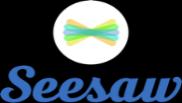

English:

In Spring 2, children will be reading ‘Iron Man’ by Ted Hughes. They will use their knowledge of the characters and plot to step into the protagonist’s shoes and write a formal letter from Hogarth to the local community, based on his experiences throughout the text. Year 4 will also be reading a selection of funny poetry from ‘Revolting Rhymes’ by Roald Dahl. They will then create their very own nonsense poems using the structure of the poems they enjoy best!
Year 4 Curriculum Map

Spring 2
Watch out, authors about!
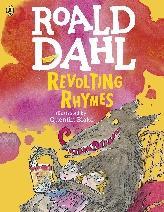
History: What can Pompeii tell us about Roman life?
In history, children will continue to use primary and secondary sources to understand where the city of Pompeii is. They will look at why the city is significant and so important to historians, as well as understanding what it would have been like to live in Pompeii as a Roman. Towards the end of the half term, children will look at how Pompeii was destroyed and the lessons learnt after the eruption of Mount Vesuvius.
Mathematics: Children will work on coordinates and build their understanding of how to plot points on a grid, using the x and y axis correctly. Later in the half term, pupils will then begin to look at the 8 times tables for the first time before they delve into understanding and manipulating multiplicative relationships. All of this work in maths lessons will help Year 4 with their weekly times tables test and fluent recall of times tables up to 12 x 12.




Geography: Why do some natural disasters do more damage than others?
Pupils will extend their learning on how they can protect themselves from natural disasters, such as earthquakes and volcanoes.
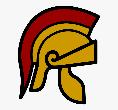
They will showcase their learning by creating their own Newsround segments warning about the dangers of natural disasters.
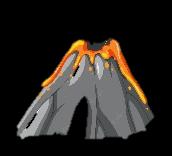

Science (Chemistry): States of matter


In science, Year 4 will continue building on their knowledge of the arrangement and behaviour of particles, including mixed state colloids. As the winter weather (hopefully!) gives way to warmer days, the children will take accurate readings of the transitional temperatures at the point of melting and evaporating, noting the atypical behaviour of iodine and testing sublimation for themselves. Ultimately, they will put this knowledge to the test, leading an investigation into the water cycle with their own classroom model!

DT: Structures

Pupils will continue to explore which shapes can be used to provide stability in structures. They will evaluate columns and geometric designs in buildings and collaborate on a class geodesic dome structure.
Art: Printmaking and Textiles

This half term, pupils will build on their traditional designs of Kente cloth. They will create a range of surfaces, combining colour, texture and pattern Pupils will also explore the symbolic significance of colour.

Computing:
This half term, Year 4 will focus on creating multimedia by digitally editing photos using recolouring, cloning and combining tools. They will create their own edits and evaluate one another’s projects.
PSHE – Relationships
Children will continue to look at what makes a respectful and caring relationship, understanding where they can seek help if they are not experiencing healthy and safe relationships in person and online.
RE – How has the crucifixion affected the Christian faith?
This half term, Children will develop their understanding of the significance of Easter for Christians and their beliefs about Jesus and his relationship with God.

French:
This half term, Year 4 will continue to rehearse and recite complex sentences with fronted adverbials, using the range of masculine animals they know in addition to new, feminine nouns. This will help them to build complex sentences within their writing.
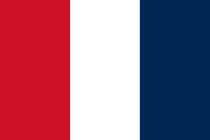
Thrive Day
PE – Net/Wall Games:

Music:


Children will play the individual sports, tennis and badminton where they can explore different shots with both fore hand and back hand and demonstrate different court positions in game play.

Reading and Spellings at home:

For Year 4’s Thrive Day this half term, children will focus on ‘Our Wellbeing’ with an Easter-themed wellbeing afternoon.
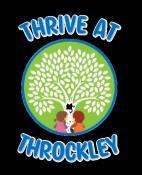
Children will wear pyjamas, watch an Easter movie and decorate eggs. They will take time to reflect upon why taking care of themselves is an important skill for life.
To reach their full potential, children must be reading aloud with an adult at home every night. Reading develops skills which are invaluable across the whole curriculum and this extra practice can have a significant impact on the amount of progress made, and the speed at which it is made. When you are reading or practising spellings with your child, please remember to sign in their reading record for a chance to win fantastic prizes.

Children will listen to thematic film music, ping pieces in 2 and 3 parts using counter melodies. They will also learn to extend a drumming piece and sing syncopated rhythms.
Homework: In Year 4, children will receive two pieces of homework each week. They will have one piece of English or maths homework and one piece focussed on times tables. Homework will be sent out on Monday and will be required back in school by the following Monday! Please encourage and support your child with their homework by making sure it is completed on time.

English: For our reading focus this half term, we will be examining non-fiction texts linked to our history and geography topics. We will discuss how the writing style can differ depending on the audience and context. We will utilise the knowledge that we gain from reading these texts to aid us in creating some outstanding non-fiction written pieces of our own. We will start with an explanation text outlining how the Maya civilisation has influenced the modern world before creating an exciting travel blog detailing what you would see if you visited Paris.

* Links to history and geography
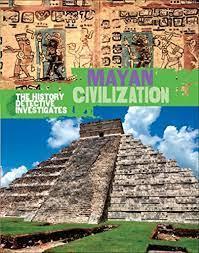
Year 5 Curriculum Map Spring
2
Mathematics: Building on their learning about area in Spring term 1, children will learn to calculate the volume of 3D shapes. Following this, children will be building on their understanding recall of times table facts to investigate factors, multiples and prime numbers. They will be able to identify common factors as well as prime factors and be able to use these when solving problems. Children will also learn to utilise quick strategies to accurately and efficiently multiply 3 or more numbers together.

History – The Mayans: Building on our understanding of the concept ‘civilisation’ and ‘empire’, children will use a range of different historical skills to answer the enquiry question, “How have the Maya civilisation influenced the modern world?” They will investigate life during the Mayan times and how progressive this ancient society was for its time. Children will develop their disciplinary knowledge by analysing at a range of historical source types, such as: sketches, artefacts and independent research.
Geography – How does Paris compare to London? Building on their Year 2 learning about our capital city, children will locate both cities on a globe, developing their understanding of scale and distance. They will use six figure grid references when looking at maps to be able to describe the location of human and physical features such as: population, climate, time zone, economy, education and food and culture. They will investigate landmarks and why tourists may visit each destination before planning a tour
Around Paris. *Links to French


Science – Animals including Humans


Building on their Year 4 learning about humans, this term, children will learn about changes in humans throughout their life. Beginning with embryos in the womb, children will learn the physical and emotional changes that they can expect to go through as they progress through their adolescence years and into adulthood. In addition, they will explore gestation periods of different animals and conduct a scientific enquiry about baby growth rate.

* Links to Design Technology


DT - Mechanisms:

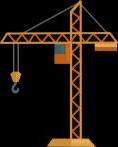
Using gears and pulleys, children will investigate how to lift a car onto a roof, before making their own prototype pulley system.
Art – Printmaking: Children will use the reduction method to create a piece of printed artwork. They will explore the work of John Brusdon and make links between his work and Andy Warhol’s.
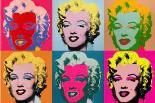
PSHE: Relationships

Children will continue to explore family relationships as well as respectful and caring relationships with their peers. They will consider actions online and discuss online relationships and the importance of applying the same principles of a face-to face relationship when communicating with our friends online.
* Link to Computing

French:

ICT/Computing:

Children will use the iPad to capture multimedia and air drop it into a larger project. Children will edit videos created on green screen and add layers of photos and videos. They will use background brush tool to erase finer green background details.
PE – Striking and fielding:

In PE this term, children will continue build their understanding of tactics for games and recognise when they should play more attacking shots looking for gaps in the field and when to play more defensively. They will increase their accuracy when throwing over shorter distances and learn to track the flight of the ball to improve their catching success.
RE –What does the Qur’an teach about God?
Children will explore this sacred text and how it influences Muslim’ lifestyle, how it is taught and why it is significant today.


This half term, Year 5 will continue to invent a range of complex sentences using subordinate clauses, using their knowledge of time in French. They will recite and rehearse complex sentences with fronted adverbials, adjectives before and after the noun, and a variety of co-ordinating conjunctions to describe civic amenities in the town where they live.
Times Tables:


Children should all be able to quickly recall all times tables up to 12 x 12 = 144 now. It is essential for children to be accurate and quick with tables so that they can confidently access the full maths curriculum. We are now having weekly times tables tests to check children’s recall so keep practising regularly at home!
Knowledge organisers which outline the key content covered in History, Science and R.E. will be uploaded onto Seesaw. Please take a look and quiz your child on their newly acquired knowledge!


Reading and Spellings at home:

To reach their full potential, children must be reading aloud with an adult at home every night. Reading develops skills which are invaluable across the whole curriculum and this extra practise can have a significant impact on the amount of progress made, and the speed in which it is made. When you are reading or practising spellings with your child, please remember to sign in their reading record for a chance to win fantastic prizes!

Homework: In Year 5, children will receive one piece of homework each week relating to work we have done that week. Homework will be sent out on Friday afternoons on Seesaw and will be required back in school by the following Friday! Children can also take a paper copy if they would prefer. Please encourage and support your child with their homework by making sure it is completed as this supports their learning in school.
English:
This half term, we will continue to study Street Child by Berlie Doherty. This will complement our history unit on the Industrial Revolution as we will explore how the protagonist (Jim Jarvis) navigates through 1860’s London as he tries to desperately avoid the Victorian workhouse!
As pupils continue to develop their writing skills and style through learning and revising a range grammatical features, they will be writing a non-chronological report about the Industrial Revolution and what life would have been like back then.

Year 6 Curriculum Map Spring
2
Mathematics:
In Mathematics, we will be continue to be working hard on our arithmetic skills to ensure quick and accurate answers. Additionally, we will be building on our knowledge of converting between units, through our study of ratio- how exciting!
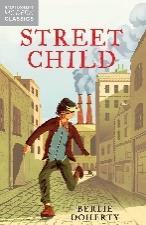
RE – How do religious people make moral and ethical choices?
This half term, we will continue our understanding of Jesus and Muhammed. We will also consider what it means to be moral and ethical and how religious people use these principles in their daily lives.


As well as this, we will be revisiting shape and its properties. This will provide the opportunity to use protractors to measure angles and construct shapes. As always, times tables are at the forefront of our learning and therefore children will be using Times Table Rockstars to aid this.


Geography – Is the damage to our world irreplaceable? Linking well to our recent history unit, pupils will be exploring climate change and how this affects us. We will consider how industrial change has affected our world and discuss whether this damage is reversible or not.
History – How has the Earth’s climate changed since the 170’s?
Within this unit, Year 6 will explore the Industrial Revolution by examining inventions made during this time. They will also inspect how the increase in factories influenced climate change

Science - Electricity:

Before starting our new topic, we shall be consolidating ‘Light’ to ensure children can confidently discuss how we are able to see items and how light travels. This half term, we will be building on our knowledge of physics through our exploration of electricity. Children will learn through hands-on, practical scientific investigations using wires and batteries to create their own circuits. They will also consider which items are conductors and insulators and how these items differ. Furthermore, we will also be discussing the importance of electrical safety.


DT- How strong is a piece of spaghetti?
Children will test the strength of a piece of spaghetti and then use their understanding to construct a 1m tower. Art- Painting and Collage Pupils will develop refined skills in layering and overworking. By studying Pablo Picasso and Patrick Caufield to create a series of still life drawings combined with collaging.

ICT/Computing: This half term, children will develop their computing skills by developing their own spreadsheets. In online safety, they will explore privacy and security as they consider how to keep themselves safe online.

PSHE: Relationships
Children will consider actions and conduct online and discuss appropriate behaviours in online relationships. They’ll also look at respectful relationships.
* Link to Computing
PE – Rounders and Cricket:
French:


In French, children will begin to introduce family members.
Building on the previous term, we will continue to practise greetings in French and start to ask questions about school life.

Supporting with Assessments
This is a crucial half term for children and in order to help them we have set up a Booster Club on Tuesdays after school.
Times Tables:


Children should all be able to quickly recall all times tables up to 12 x 12 = 144 now. It is essential for children to be accurate and quick with tables so that they can confidently access the full maths curriculum. Every week, they will have a times table challenge. Keep practising!
Knowledge organisers which outline the key content covered in History, Science and R.E. will be uploaded onto Seesaw. Please take a look and quiz your child on their newly acquired knowledge!


Building on their understanding from Year 3, children will be able to adhere to a set of rules when playing rounders and cricket. Children will demonstrate attacking and defending skills in the role of a batter, bowler and fielder. Children will develop their catching skills by tracking the ball through the air.

Reading and Spellings at home:

To reach their full potential, children must be reading aloud with an adult at home every night. Reading develops skills which are invaluable across the whole curriculum and this extra practise can have a significant impact on the amount of progress made, and the speed in which it is made. When you are reading or practising spellings with your child, please remember to sign in their reading record for a chance to win fantastic prizes.


Homework: In Year 6, children will receive two pieces of homework each week. They will have one piece of English homework and one piece of maths homework. Homework will be sent out on Monday afternoons and will be required back in school by the following Monday! Please encourage and support your child with their homework by making sure it is completed as this will aid them with their transition to secondary school.
